
During March, the last month in power for the coalition government led by the Pakistan Peoples Party, inflation reportedly fell to 6.57% – a level not seen in almost six years. However, experts have pointed out that the continuing downward trend of inflation over the preceding months is more a result of changes in the methodology used to calculate inflation (introduced last year), rather than a tangible decrease in upward pressure on prices of essential commodities.
Inflation, measured by the Consumer Price Index (CPI), registered at 6.57% in March over the same month a year ago, according to data released by the Pakistan Bureau of Statistics (PBS). This is the lowest (reported) level of inflation witnessed in Pakistan since July 2007, when CPI-based inflation had clocked in at 6.45%.
Except for a few scattered months, prices of essential commodities have not eased since July 2007. The momentum was spurred initially by a boom in prices of commodities and crude oil in international markets. Later on, inflation continued in the double digits due to nationwide flooding for two consecutive years, which broke the agricultural supply chain and exposed administrative weaknesses at both federal and provincial levels.

Fuel and food-adjusted inflation has also eased to 9% in March over a year ago, which independent experts are again not ready to accept. Core inflation, measured by excluding food and energy items from the basket, in March apparently slipped below the discount rate – the rate at which the central bank lends money to commercial banks.
In February, core inflation had stood at 9.6%. Experts usually accord more importance to core inflation as an indicator of price pressures, since it is independent of seasonal price shocks due to the exclusion of food and energy items. But here again, trends reported by the PBS go against economic theory.
Average inflation during the first nine months (July-March) of the current fiscal year remained at almost 8% over the comparable period of the last fiscal year, according to the PBS. For the current fiscal year, which will end in June, the average inflation target has been revised downward to 9% from earlier estimates of 9.5%.
Controversial figures
However, experts say that the reported figure of 6.57% is contentious and incomparable to the July 2007 figure, as the government (controversially) changed the computation method used to calculate inflation last year. For example, under the new methodology, house rent now carries a 21.82% weight in the basket of goods tracked by the CPI; earlier, the PBS used to calculate the effect on inflation due to changes in house rent by taking an average of changes over 24 months.
“House rent is now calculated on the basis of a monthly rental survey, which is distortive and does not reflect real change,” an official of the PBS confided to The Express Tribune. Similarly, the government had also reduced gas slabs – which are used to determine tariffs according to the amount of gas consumed by different sectors – from four to three under the new methodology. The change in slabs has resulted in a seemingly artificial reduction in prices by 46% every month since the change took place. In March, gas prices seem to have reduced 46.1% over a year ago according to the PBS data.
Experts have also expressed scepticism about the reduction in core inflation, pointing to the constant growth in the nation’s money supply. The State Bank of Pakistan has been printing notes worth Rs4 billion a day on average to finance a yawning budget deficit. The State Bank is also indirectly involved in the rescue efforts, as it has been providing money to commercial banks with an aim to keep at least one line of financing open for the finance ministry.
Published in The Express Tribune, April 2nd, 2013.
Like Business on Facebook to stay informed and join in the conversation.
COMMENTS (3)
Comments are moderated and generally will be posted if they are on-topic and not abusive.
For more information, please see our Comments FAQ












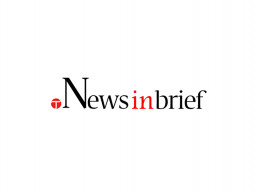


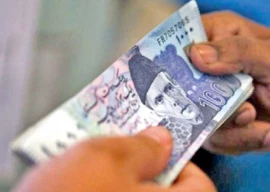


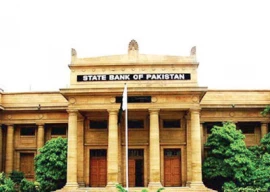
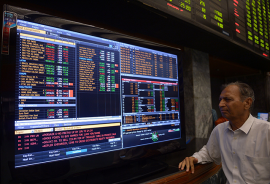
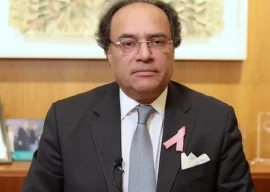










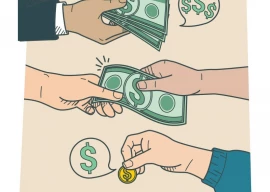



1714129906-0/Clint-Eastwood-(1)1714129906-0-270x192.webp)






Good coverage!!
Nice trend! more drastic policies will help to control inflation.
An informative article indeed. Taking into consideration downward monetary easing of interest rates + daily printing of billions of bills + growing trade deficit + currency depreciation, it would defy the law of economics for inflation to move downwards. The only positive indicator offsetting these negatives is stabilizing energy price in global markets.